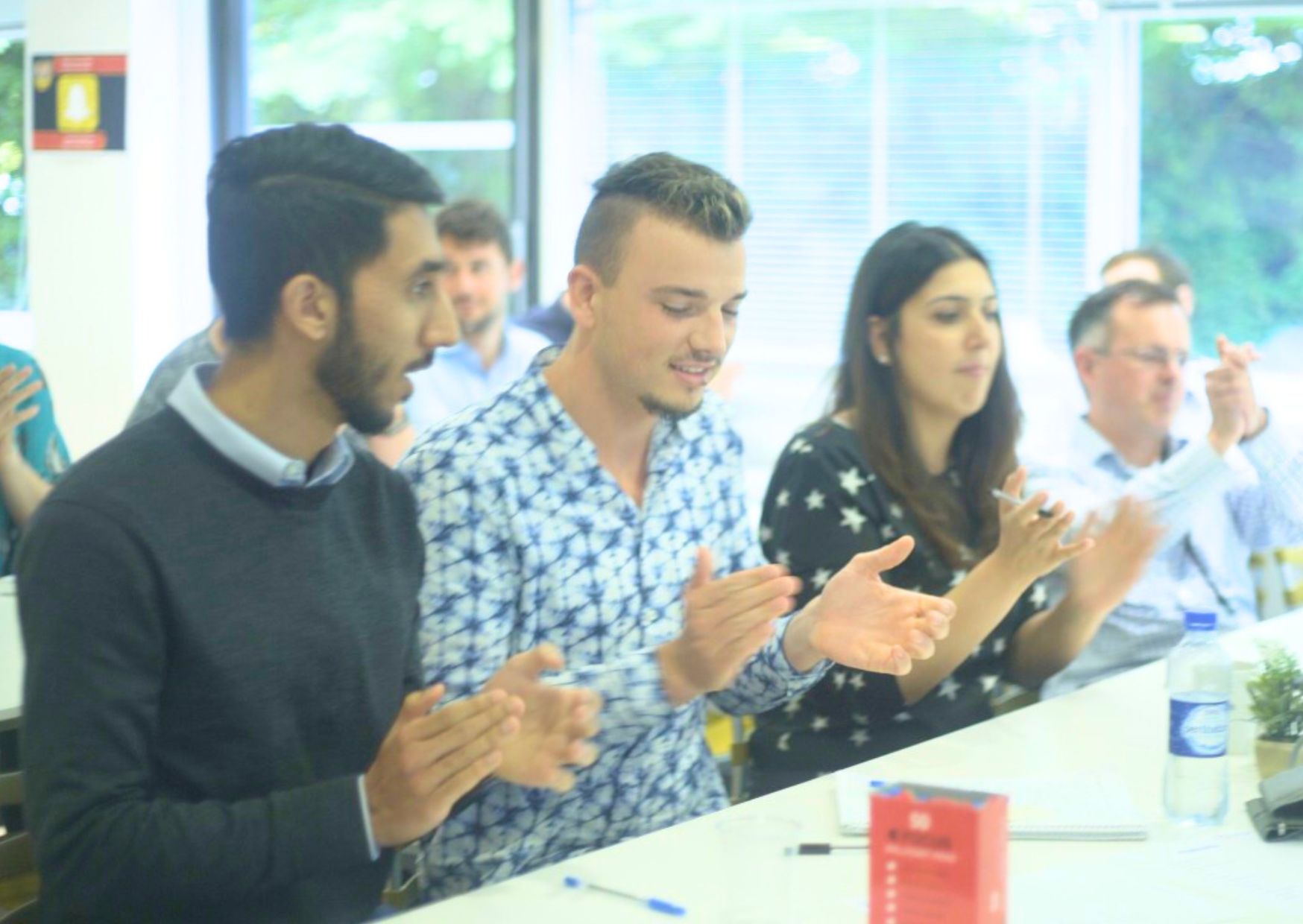6 Essential Tips to Run a Successful Employee Workshop
Creating a successful employee workshop isn’t as easy as it may seem.
In this article, I’ll provide 6 essential tips to help you create the most effective and successful employee workshop.
As a wellbeing speaker and workshop facilitator, I’ve had a vast amount of experience facilitating successful employee workshops.
I’ll share my experiences and top tips in this article.
Contents
Video on 6 Essential Tips to Run a Successful Employee Workshop
Benefits of a Successful Employee Workshop
6 Essentials to Run a Successful Employee Workshop
How to Plan a Successful Employee Workshop
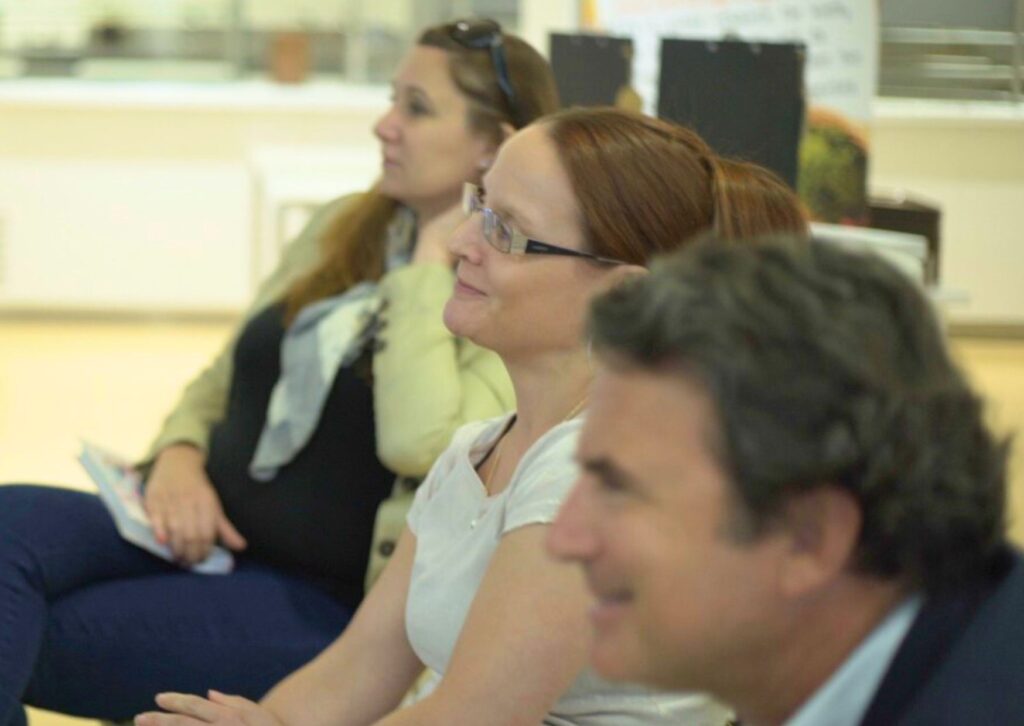
Video on 6 Essential Tips to Run a Successful Employee Workshop
Benefits of a Successful Employee Workshop
As a wellbeing speaker, I cannot stress enough the transformative power of a well-executed employee workshop. I
t’s like a breath of fresh air in the corporate environment, offering a multitude of benefits. Here are a few key ones:
- Improved Skills
Workshops provide a platform for employees to learn new skills or enhance existing ones.
This not only boosts their confidence but also contributes to their professional growth.
Employee workshops can involve a whole range of learning opportunities, including building confidence, setting goals, motivation and more!
- Enhanced Teamwork
By participating in group activities, employees learn to collaborate effectively.
This fosters a sense of unity and improves overall team performance.
When employees attend workshops together they get an opportunity to bond and learn together.

- Increased Engagement
Engaging workshops can reignite the spark in employees, making them feel more connected to their work and the organisation.
They can bring joy and a sense of camaraderie which helps to engage employees.
- Problem-Solving
Workshops can often involve problem-solving exercises.
These help employees develop critical thinking skills, which are invaluable in the workplace.
Most businesses encounter problems and a workforce that is equipped to tackle them when they arise can be invaluable.
- Wellbeing Boost
A successful workshop can also contribute to employee wellbeing.
It breaks the monotony of daily work, reduces stress, and promotes a positive work environment.
Specific employee wellbeing workshops can help to support the wellbeing of employees.
Remember, a successful employee workshop is an investment that yields rich dividends in the form of a happier, more skilled, and more productive workforce.

6 Essentials to Run a Successful Employee Workshop
1. Make Everyone Comfortable
The first step towards a successful employee workshop is to create an environment where everyone feels comfortable.
This is not just about physical comfort, such as providing a pleasant room temperature or comfortable seating.
It’s also about creating an atmosphere of psychological safety.
Encourage open communication and respect for all ideas.
Make sure to establish ground rules that promote inclusivity and respect.
In my experience, you may start the session with some quick icebreakers or brief introductions.
I usually ask names of attendees and introduce myself while making a light-hearted relevant joke.
Remember, when employees feel comfortable, they are more likely to participate actively and contribute their ideas.
This leads to a more productive and successful workshop.
2. Have a Clear Agenda
A clear agenda is the backbone of a successful workshop.
An agenda provides a roadmap for the workshop, outlining what will be covered and when.
This helps participants know what to expect and allows them to prepare accordingly.
A well-structured agenda also helps keep the workshop focused and on track, ensuring that all key points are covered.
I usually start my workshops by outlining the goals of the workshop and what I hope to achieve.
Remember to share the agenda with the participants ahead of time where possible and be open to any suggestions or modifications.
A clear, flexible agenda is a key ingredient in the recipe for a successful employee workshop.

3. Make it Interactive
Interaction is the lifeblood of a successful workshop.
It keeps participants engaged, facilitates learning, and makes the workshop more enjoyable.
Use a variety of interactive methods to keep things interesting.
This could include group discussions, role-plays, brainstorming sessions, or interactive presentations.
Encourage participants to ask questions and share their thoughts.
I like to plant thought provoking questions throughout my workshops and get attendees to discuss them in small groups or pairs.
Those that are comfortable to share then share their answers with the group.
This helps people to feel involved and experience the workshop, rather than just sit through it.
The more interactive the workshop, the more effective it will be in achieving its objectives.
4. Include Breaks if Necessary
Never underestimate the power of a well-timed break.
Workshops can be intense, and without breaks, participants may become overwhelmed or lose focus.
Breaks provide a chance for participants to relax, process the information they’ve learned, and come back refreshed.
The length and frequency of breaks will depend on the duration of the workshop.
For a full-day workshop, for example, you might include a lunch break and two shorter breaks in the morning and afternoon.
Breaks should have clear time limits to ensure the workshop sticks to timings.
They also give attendees an opportunity to talk with each other and get to know one another.
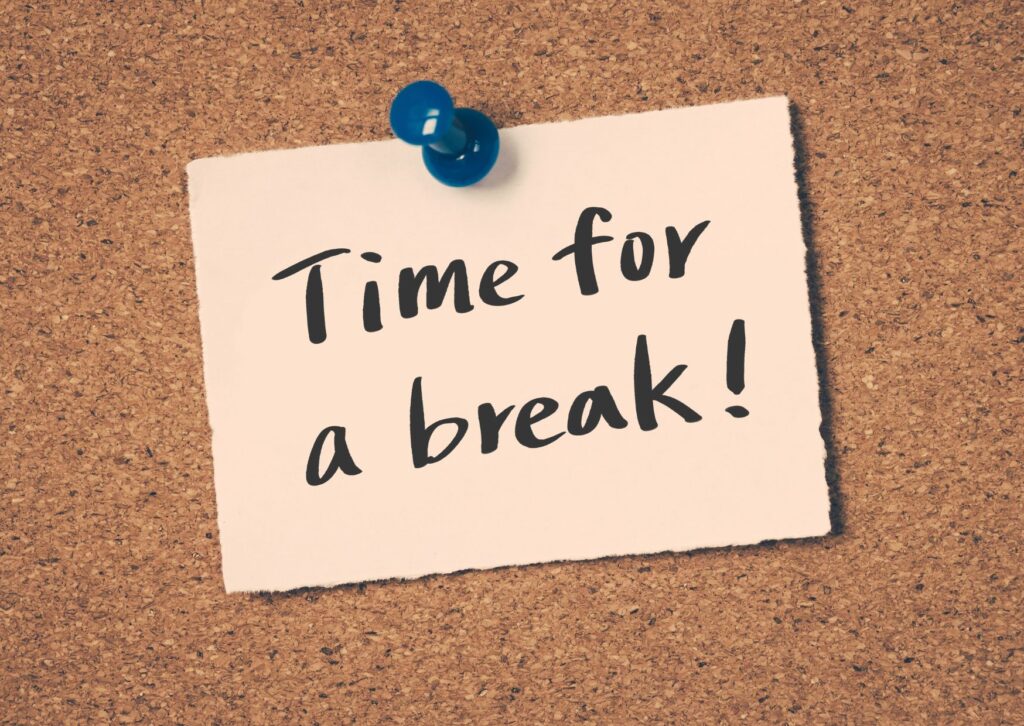
5. Connect with Attendee Emotion
Emotion plays a crucial role in learning and engagement.
When participants feel emotionally connected to the content, they are more likely to be engaged and retain the information.
Use storytelling, real-life examples, and activities that evoke emotions.
Show enthusiasm and passion for the topic, as your emotions can be contagious and inspire the attendees.
Also, be empathetic and responsive to the emotions of the participants.
I often share some of my personal stories within workshops.
This shows a level of vulnerability that helps others to feel comfortable to share their stories.
If I’m delivering a “Coping with stress workshop” I share some of my life stressors and use examples of how I’m able to overcome these stressful situations.
This emotional connection can make the workshop a more meaningful and memorable experience for everyone involved.
6. End with a Recap
A successful employee workshop doesn’t just end abruptly.
It concludes with a comprehensive recap.
This serves to reinforce the key points and helps participants consolidate their learning.
You can make this recap interactive by asking participants to share their key takeaways.
This not only helps in reinforcing the learning but also gives you an insight into what resonated most with the participants.
Additionally, provide resources for further learning and encourage participants to apply what they’ve learned.
In the earlier days of my workshop facilitation, this was a step I neglected.
However through experience I’ve been able to learn that the end of a workshop is an extremely valuable part of it.
How you finish the workshop will often determine how employees feel at the end of it.
Remember, the end of the workshop is just the beginning of the application of the knowledge gained.
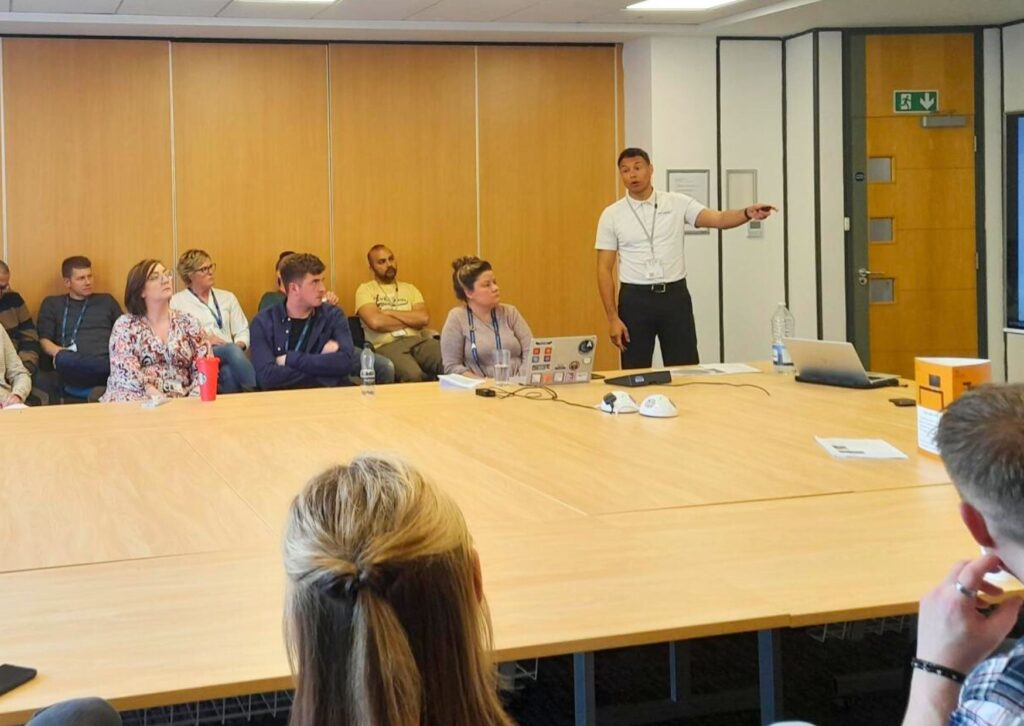
How to Plan a Successful Employee Workshop
As a wellbeing speaker, I’ve had the privilege of facilitating numerous workshops and have gathered some valuable insights on how to plan a successful one.
Here are some key steps:
- Identify the Purpose
Every workshop should have a clear purpose.
Whether it’s to impart new skills, foster team building, or discuss new company policies, having a clear goal will guide all other aspects of planning.
- Know Your Audience
Understanding who will be attending the workshop helps tailor the content to their needs and interests.
This ensures the workshop is relevant and engaging.
- Create an Agenda
A well-structured agenda is the roadmap of your workshop.
It outlines what topics will be covered and when, keeping the workshop focused and on track.
- Prepare Engaging Content
Use a mix of presentations, activities, and discussions to keep the workshop interactive and engaging. Remember, variety is the spice of life!
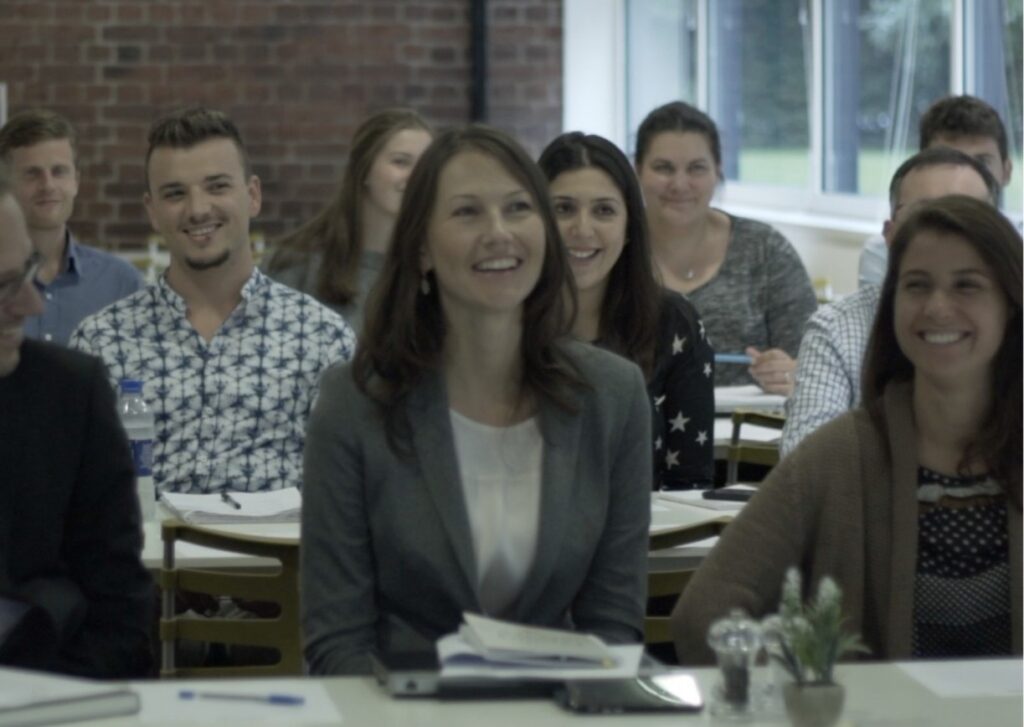
- Plan for Breaks
Breaks are essential to prevent fatigue and keep the participants refreshed and focused.
Short breaks allow employees the opportunity to go to the bathroom or grab a coffee.
Structuring these into your workshop can help the session run more effectively
- Prepare for Follow-up
Plan how you will follow up after the workshop.
This could be through feedback surveys, providing additional resources, or setting up one-on-one sessions.
Remember, planning is the key to a successful workshop. It’s like setting the stage for a great performance.
With careful planning, you can ensure your workshop is a hit with the participants and achieves its objectives.

In conclusion, running a successful employee workshop is both an art and a science.
It requires careful planning, a clear understanding of the participants’ needs, and the ability to create an engaging, interactive environment.
By following the six essentials outlined in this blog – making everyone comfortable, having a clear agenda, making it interactive, including necessary breaks, connecting with attendee emotions, and ending with a recap – you can significantly enhance the effectiveness of your workshops.
Remember, each workshop is a unique opportunity to foster learning, enhance team cohesion, and ultimately, contribute to the overall success of your organisation.
Author
Tyler Lowe – Health & Wellbeing Speaker
BSc Sport & Exercise Rehabilitation


